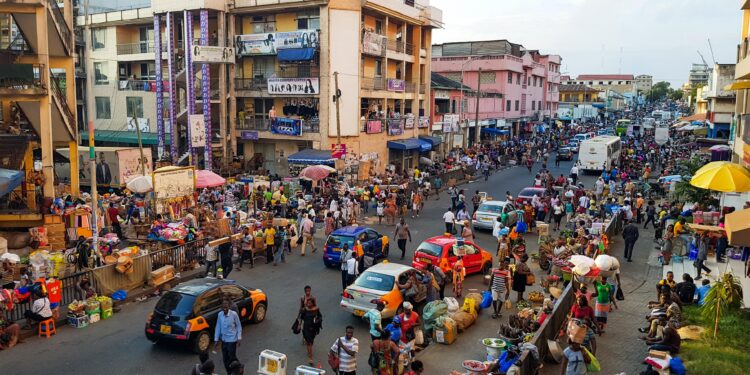As Ghana explores the possibility of transitioning to a 24-hour economy, questions arise about the potential impact on its social fabric and economic growth. From extending business hours to boosting productivity and creating jobs, the move promises to reshape daily life in the West African nation. However, experts caution that such a shift requires careful planning and infrastructural investment. This article examines whether embracing a round-the-clock economy could be the transformational catalyst Ghana needs to elevate its standing on the global stage.
Ghana’s Shift Towards a 24-Hour Economy Exploring Economic Growth and Employment Opportunities
Transitioning to a 24-hour economy represents a bold step for Ghana, potentially redefining the country’s economic landscape. By extending operational hours beyond traditional business times, industries such as manufacturing, retail, and services can drastically increase productivity and output. This shift not only leverages continuous economic activity but also capitalizes on Ghana’s strategic location to attract foreign investors looking for round-the-clock operations. Moreover, night-time industries like logistics, hospitality, and entertainment stand to benefit by tapping into previously unexplored revenue streams.
The adoption of a 24-hour economy is poised to create diverse employment opportunities, especially for youth and women, who often face challenges entering the workforce. Night shifts can offer flexible work hours, appealing to those balancing multiple responsibilities. Key sectors expected to thrive include:
- Transportation and logistics: Improving supply chain efficiency and delivery systems
- Energy and utilities: Ensuring uninterrupted power and water services necessary for continuous operations
- Health services: Expanding access to emergency and specialized care at all hours
| Sector | Potential Job Growth | Key Benefit |
|---|---|---|
| Manufacturing | +25% | Increased export capacity |
| Retail & Hospitality | +30% | Higher consumer spending |
| Transport & Logistics | +20% | Faster goods movement |
| Health Services | +15% | Improved care access |
Challenges and Infrastructure Needs for Sustaining Around-the-Clock Operations
Transitioning to a 24-hour economy in Ghana presents significant challenges, particularly in terms of infrastructure and workforce management. Reliable power supply remains one of the biggest hurdles; frequent outages disrupt continuous operations, causing productivity losses and increased operational costs. Moreover, existing transportation networks are not designed for round-the-clock usage, limiting access to essential goods and services during night hours. Urban centers often lack adequate street lighting and security measures, which further discourages businesses and consumers from participating in late-night activities.
Key infrastructural needs include:
- Upgraded and resilient power grids to ensure uninterrupted electricity
- Improved public transport systems operating overnight
- Enhanced digital infrastructure to support remote services and 24-hour retail
- Robust security frameworks to guarantee safety for workers and customers alike
| Infrastructure Aspect | Current Status | Required Improvement |
|---|---|---|
| Power Supply | Intermittent outages in major cities | Investment in renewable energy and grid stability |
| Transportation | Limited night services; low vehicle availability | 24-hour public transit and safer night routes |
| Public Safety | Insufficient night policing and street lighting | Expanded surveillance and community patrol programs |
| Digital Connectivity | Inconsistent broadband access outside business hours | 24/7 technical support and network upgrades |
Policy Recommendations to Support a Successful Transition to a 24-Hour Economy
For Ghana to thrive in a 24-hour economic model, comprehensive policy frameworks must be established to balance growth with social welfare. Labor laws should be updated to safeguard workers’ rights, ensuring fair wages and regulated shift hours that prevent exploitation and burnout. Additionally, government incentives like tax breaks and subsidies can encourage businesses to invest in night operations, particularly in sectors such as manufacturing, logistics, and technology. Strengthening public infrastructure with reliable power supply and transport services will be critical to support continuous operations and enhance worker mobility during unconventional hours.
Equally important is fostering an inclusive approach that addresses safety and health challenges associated with a round-the-clock economy. Policies should promote 24/7 public transportation networks and invest in community policing to maintain security in night-time areas. Moreover, urban planning must adapt to vibrant night economies by zoning commercial hubs strategically to reduce congestion and noise pollution. Below is a snapshot of key focus areas that policymakers should prioritize:
| Focus Area | Policy Action | Expected Impact |
|---|---|---|
| Labor Regulation | Limit night shifts to 8 hours; ensure overtime pay | Protect worker health; reduce fatigue-related risks |
| Infrastructure | Expand 24-hour public transport; stable power supply | Improve accessibility; enable continuous business activity |
| Safety & Security | Increase night patrols; invest in street lighting | Enhance public confidence; reduce crime rates |
| Urban Planning | Zoning for night markets & entertainment districts | Facilitate diverse economic activities; minimize disturbances |
Wrapping Up
As Ghana explores the potential of a 24-hour economy, the nation stands at a crossroads between tradition and transformation. While challenges such as infrastructure, security, and social acceptance remain, proponents argue that extended operating hours could stimulate economic growth, create jobs, and enhance global competitiveness. Whether Ghana can successfully navigate these complexities to usher in a new era of round-the-clock commerce remains to be seen. What is clear, however, is that the conversation about a 24-hour economy is prompting critical reflections on the future of the country’s development and its place in the global market.














